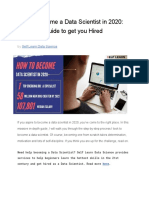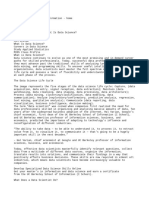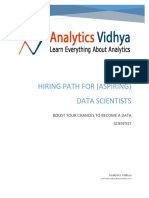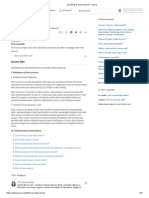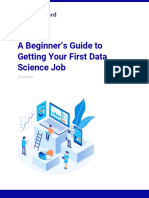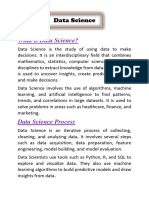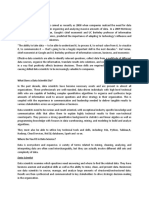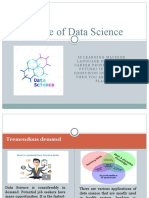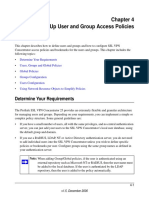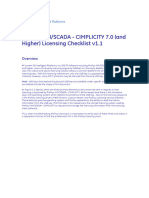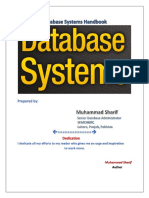0% found this document useful (0 votes)
31 views6 pagesData Science
This document is an archived page detailing the career path of data science, including its definition, role impact, earnings potential, and required skills. It emphasizes the importance of strong statistical knowledge, programming abilities, and effective communication for success in this field. Additionally, it provides resources for self-learning and bootcamps to help individuals pursue a career in data science.
Uploaded by
marcb00Copyright
© © All Rights Reserved
We take content rights seriously. If you suspect this is your content, claim it here.
Available Formats
Download as PDF, TXT or read online on Scribd
0% found this document useful (0 votes)
31 views6 pagesData Science
This document is an archived page detailing the career path of data science, including its definition, role impact, earnings potential, and required skills. It emphasizes the importance of strong statistical knowledge, programming abilities, and effective communication for success in this field. Additionally, it provides resources for self-learning and bootcamps to help individuals pursue a career in data science.
Uploaded by
marcb00Copyright
© © All Rights Reserved
We take content rights seriously. If you suspect this is your content, claim it here.
Available Formats
Download as PDF, TXT or read online on Scribd
/ 6

